
Pete Boardman, 1st ascent Everest SW face 1975. President BMG 1979.
The Mountain Guides qualification is seen as the toughest and top ticket in the climbing world. Mountain guides are extremely experienced mountaineers, climbers and skiers and their qualification allows them to work in amongst the highest mountains around. The qualification usually takes many years to get, from building up the requisite experience through to passing all the gruelling tests - from skiing in the Alps to summer rock climbing in the UK.
VIDEO: British Mountain Guides
Starring in this video is Tim Neill of Plas y Brenin.
The Course
Holders of the International Federation of Mountain Guides carnet can look after anyone in any mountains anywhere. It's the highest qualification in the world for leading people skiing, climbing or mountaineering, and is a legal requirement for those working as alpine guides in the European Alps.
Becoming a Guide is as demanding and rewarding as working as one, so it's a route for dedicated mountaineers only. Full training and assessment takes a minimum of three years – if you're already a highly experienced mountaineer and skier, that is. Even to attend an IFMGA pre-training induction course, you need high rock grades under your belt, experience of top alpine grandes courses, solid competence skiing any snow, and the skills and knowledge to look after yourself in Scottish winter. IFMGA training and assessment involves a series of rigorous courses and tests in summer rock, winter climbing, alpinism, off-piste and ski-touring, avalanche safety and coaching.
British aspiring Guides should apply to the British Association of Mountain Guides (BMG). The BMG meets the standards laid down by the European Guides Commission (EGC) and is ratified by the International Federation of Mountain Guide Associations (IFMGA).
- You can contact the British Mountain Guides on their website
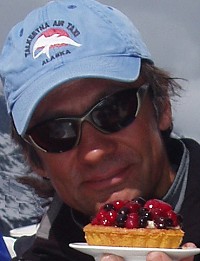
"Coming from a non-instructional background, I had quite a hard time on the Guide scheme at first: learning how to look after folk in the mountains. I was helped massively by friends who are Guides working at places like Plas y Brenin and Glenmore Lodge. The Scottish winter test was one of the most difficult weeks of climbing I'd ever done, particularly as I had a titanium bar and 4 bolts in my left leg after breaking it in a skiing accident.
I'm now based in Chamonix and try to have as wide a variety of work as I can: off-piste skiing and ice climbing in the winter, ski touring in the spring, alpine climbing in the summer and a commercial expedition to India every autumn. One of the few downsides of all this dangerous walking is that my rock climbing standard has plummeted! But 99% of the time, the work is great and I can't imagine a better job than living and working in the white pointy parts of the world."
- Andy Perkins is based in Chamonix and can be found at www.andypmountainguide.com
Induction Courses
To become a 'Candidate' for the guide scheme, you need to pass an induction course. If you fail any elements, the Training Committee will decide whether you can re-take all the elements again the next year. If you pass, you will be issued with a log book.
Rock Climbing Induction (October)
During the one-day rock climbing assessment, which is held in North Wales, you must demonstrate your ability to climb E1 5b. Non-MIC holders must take a two day extension in teaching rock climbing and improvised rescue and this is recommended for all candidates.
Ski Technique Course and Ski Induction Course (January)
A three-day instructional course, followed by a one-day ski assessment, held in the Alps.
Avalanche Course in Alpine Winter (January)
The five-day training programme is followed by a one-day assessment and covers snow pack evaluation, avalanche risk assessment and terrain evaluation.
Scottish Winter Induction (March)
One day of winter climbing, where you must demonstrate Grade V ability. Non-MIC applicants must take a two-day extension for training in winter skills and teaching.
If you pass all these tests you are now a 'Candidate' for the Guides scheme and can proceed to training and assessment.
- You can contact the British Mountain Guides on their website
Training and assessment
There are both UK-based and Alpine sections to the BMG course. The total number of training and assessment days is 106. Once you have passed training courses, you are known as an 'Aspirant Guide'.
UK Summer
Training courses cover all practical elements of the summer syllabus including physical performance, injury avoidance, environment, leadership, coaching, professionalism, high altitude guiding and aspects of assessment techniques. 'Summer Training One' is a three day course which takes place in the Lakes each May. Both 'Summer Training Two' (over four days in June) and the assessment (over six days in September) are held in North Wales. is a four day course held in North Wales each June. Once you have successfully completed Summer Assessment, you are a 'Trainee Guide' and must join the British Mountain Guide Association.
UK Winter
Training and assessment courses are held in Scotland. Training courses are three days long, include client care, guiding techniques and avalanche awareness and take place in January. The six-day assessment includes personal climbing skills, guiding skills and client care is held in March.
Alpine Skiing and Ski Mountaineering
Training courses are five days long, take place in April, and cover ski techniques for pistes and natural slopes, ski touring and guiding skills. Once you have completed a training course, you must spend a minimum of fifteen days work experience with Guides who have been qualified for at least three years. At least ten of the days must be on recognised ski tours, consisting of at least three consecutive nights in huts. The six-day ski-mountaineering assessment focuses on skiing standards and touring skills.
Alpine Summer
Alpine training courses are six days long, and take place in the European Alps each June.
There are two stages to the Alpine Apprenticeship – 'Stage 1' is the season (or seasons) prior to assessment and 'Stage 2' is the season after it.
During Stage 1, you must spend at least 30 days under the direct supervision of a guide who has been qualified for three years or more. Once you've done 20 days, you can attend a six-day Alpine Assessment course (these take place in September). After assessment, you must complete the remaining apprenticeship days.
Log book entries must be sent to the BMG office at the end of the season. Stage 2 of the apprenticeship has to be a full summer (to the end of August), and you must log at least another 10 apprenticeship days.
Certification Seminar (September)
A one-day seminar in North Wales concludes the training and assessment scheme. This covers insurance issues, accident and complaints procedure, AGM and area meetings, equivalence in France, working as a newly-qualified guide and in-service training.
In-Service Training
All Full Guides must complete two days in-service training every five years.
- You can contact the British Mountain Guides on their website
- Therm-a-Rest Navis Sleeping Bag 7 Jul, 2013
- Scarpa Gea RS Ski Touring Boots 28 Apr, 2013
- Polvere Ski Mountaineering Skis 23 Apr, 2013
- Rab Infinity Down Jacket 7 Apr, 2013
- COMPARISON REVIEW: Mountain Hard Shells 4 Apr, 2013
- The Questionable Ethics Of Down Production 10 Jan, 2013
- WITH VIDEO: NEW TNF Summit Series Meru Range 12 Sep, 2012
- Autumn/Winter 2012 Polartec NeoShell Mountain Clothing 7 Sep, 2012
- The Trust: Ueli Steck and Scarpa Interview 21 Aug, 2012
- Patagonia Ultralight Down Jacket 5 Jul, 2012

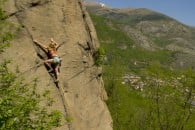

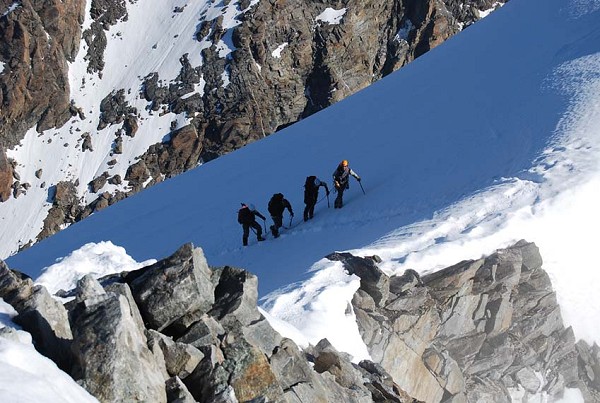




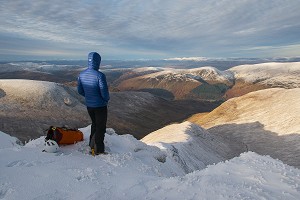
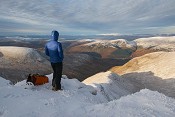








Comments